A Way other
than Our Own
Devotions for Lent
Walter Brueggemann
Compiled by Richard Floyd

2017 Walter Brueggemann
First edition
Published by Westminster John Knox Press
Louisville, Kentucky
17 18 19 20 21 22 23 24 25 2610 9 8 7 6 5 4 3 2 1
All rights reserved. No part of this book may be reproduced or transmitted in any form or by any means, electronic or mechanical, including photocopying, recording, or by any information storage or retrieval system, without permission in writing from the publisher. For information, address Westminster John Knox Press, 100 Witherspoon Street, Louisville, Kentucky 40202-1396. Or contact us online at www.wjkbooks.com.
Unless otherwise indicated, Scripture quotations are from the New Revised Standard Version of the Bible, copyright 1989 by the Division of Christian Education of the National Council of the Churches of Christ in the U.S.A., and are used by permission.
Some content has been previously published in Walter Brueggemann, The Collected Sermons of Walter Brueggemann, vols. 1 and 2 (Louisville, KY: Westminster John Knox Press, 2011, 2015) and is used by permission.
Book design by Sharon Adams
Cover design by Eric Walljasper
Library of Congress Cataloging-in-Publication Data
Names: Brueggemann, Walter, author. | Floyd, Richard A., editor.
Title: A way other than our own : devotions for Lent / Walter Brueggemann ; compiled by Richard Floyd.
Description: Louisville, KY : Westminster John Knox Press, [2017]
Identifiers: LCCN 2016032960 (print) | LCCN 2016036187 (ebook) | ISBN 9780664261696 (pbk. : alk. paper) | ISBN 9781611647877 (ebook)
Subjects: LCSH: Lent--Meditations.
Classification: LCC BV85 .B74 2017 (print) | LCC BV85 (ebook) | DDC 242/.34--dc23
LC record available at https://lccn.loc.gov/2016032960
 The paper used in this publication meets the minimum requirements of the American National Standard for Information SciencesPermanence of Paper for Printed Library Materials, ANSI Z39.48-1992.
The paper used in this publication meets the minimum requirements of the American National Standard for Information SciencesPermanence of Paper for Printed Library Materials, ANSI Z39.48-1992.
Most Westminster John Knox Press books are available at special quantity discounts when purchased in bulk by corporations, organizations, and special-interest groups. For more information, please e-mail .
Contents
Prolonged exposure to Walters work performs a kind of alchemy on the soul, gradually transforming our cramped and sclerotic vision into something more capacious and generous. He is an excellent, if occasionally disruptive, companion for the Lenten journey.
Walters incisive exploration of Scripture reveals the same prophetic message found in Isaiah and Jeremiah calling to us also through the Psalms, Torah, gospels, and even a handful of epistles. We are invited to walk a Lenten path that may be barely recognizable to our self-indulgent and violent worlda path marked by grace, compassion, and abundance.
Those of us who were students of Walter will recall the arresting prayers with which he began classes. I have tried to draw on his language in constructing the prayers, and hopefully some small measure of his spirit.
Richard Floyd
Seek the L ORD while he may be found,
call upon him while he is near;
let the wicked forsake their way,
and the unrighteous their thoughts;
let them return to the L ORD , that he may have
mercy on them,
and to our God, for he will abundantly pardon.
Isaiah 55:67
T hese verses are a familiar call to worship or a call to repentance, not a bad accent for Lent. The face of God shown here is of a Lord near at hand, ready to forgive, a God of grace. But this is a God to whom a turn must be made, a God of demand, a God of demand ready to be a God of grace... not just hard demand, not just easy grace, but grace and demand, the way all serious relationships work.
The imperative is around four verbs, seek, call, forsake, return, good Lenten verbs. But this is not about generic repentance for generic sin. I believe, rather, the sin addressed concerns for Jews too eager to become Babylonians, too easy to compromise Jewish identity, Jewish faith, Jewish disciplinein order to get along in a Babylonian empire that had faith in other gods with other disciplines. The imperatives are summons to come back to an original identity, an elemental discipline, a primal faith.
I suggest, moreover, that these are just about the right imperatives for Lent among us Christians. For I believe the crisis in the U.S. church has almost nothing to do with being liberal or conservative; it has everything to do with giving up on the faith and discipline of our Christian baptism and settling for a common, generic U.S. identity that is part patriotism, part consumerism, part violence, and part affluence.
The good news for the church is that nobody, liberal or conservative, has high ground. The hard news is that the Lenten prerequisite for mercy and pardon is to ponder again the initial identity of baptism... child of the promise,... to live a life worthy of our calling, worthy of our calling in the face of false patriotism; overheated consumerism; easy, conventional violence; and limitless acquisitiveness. Since these forces and seductions are all around us, we have much to ponder in Lent about our baptismal identity.
Lent is a time to consider again our easy, conventional compromises and see again about discipline, obedience, and glad identity. And the climax of these verses:
that he may have mercy...
for he will abundantly pardon.
Isa. 55:7
The word to the compromised deportees is that Gods face of pardon and mercy is turned exactly to the ones who reengage an identity of faith.
God of grace and demand, you challenge us to reclaim our baptismal identity as those whose lives are built on your call and your promisesnot on the easy, seductive forces around us. Stir our hearts that we may engage your transforming word anew and rediscover its power to save. Amen.
I lift up my eyes to the hills
from where will my help come?
My help comes from the L ORD ,
who made heaven and earth.
Psalm 121:12
W e are on the road again! As followers of Jesus, we are on the road again in Lent, walking the way of obedience to Jerusalem for the big showdown with the authorities of church and state. It turns out, every time, to be a hazardous journey, full of toils and snares, potholes and adversaries, ending in a rigged trial. But women and men of faith are always on the road again, departing safe places, running risks, and hoping for well-being on the journey.
The defining journey of biblical faith begins in the departure of Abraham and Sarah back in the book of Genesis. They were dispatched by God to leave their safe place, to go to a new land yet to be given, to get a new name, to be blessed by God, and to be a blessing to the others around them. They went! And their family, generation after generation, has gone. And we, finally in their wake, must also travel beyond safe places to the gifted end that God intends, hopefully to be blessed and a blessing on the way.
And if we ponder our destination, perhaps it is to be to the neighborhood of shalom, the neighborhood of shared resources, of inclusive politics, of random acts of hospitality and intentional acts of justice, of fearless neighborliness that is not propelled by greed or anxiety or excessive self-preoccupation.
Psalm 121 is designed exactly for travelers who face a demanding, risky journey. It is a psalm that has been used over and over by travelers and now is available for us. This psalm is an assurance and an affirmation that the journey we now undertake is not by ourselves alone. We are surrounded on the way by the God of all trust, the God who kept Abraham and Sarah safely, the one who walked all the way to Jerusalem with Jesus, all the way to Friday and on through to Sunday.
Next page
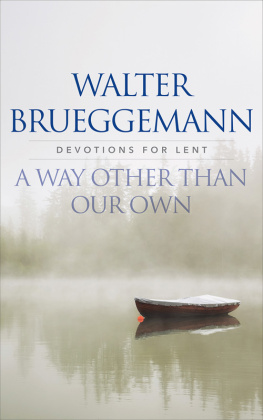
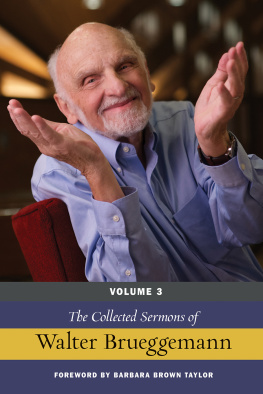
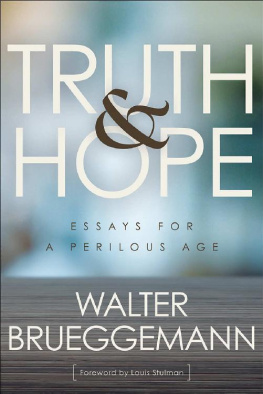
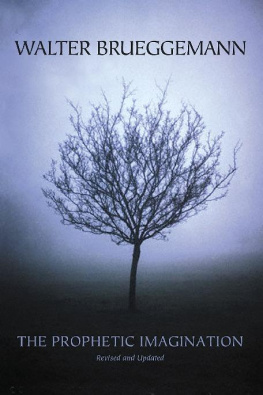
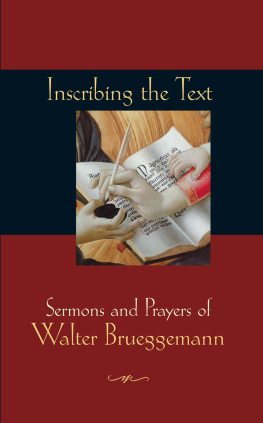
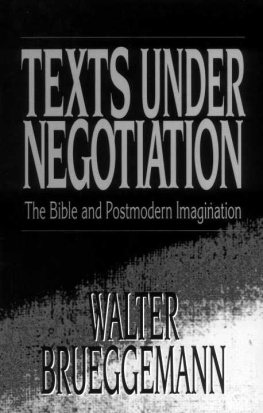
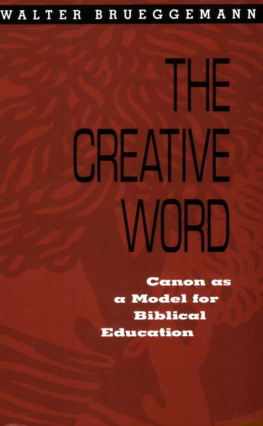
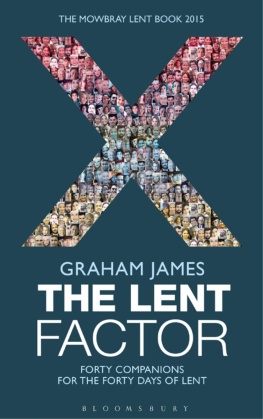
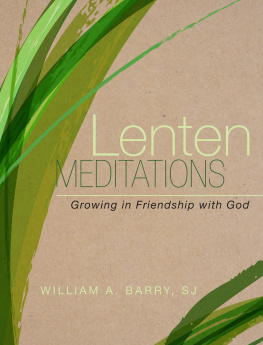

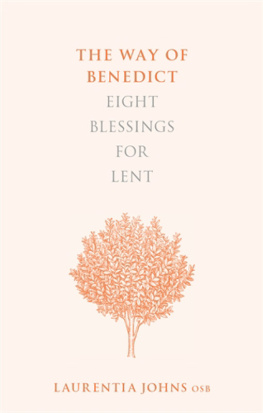
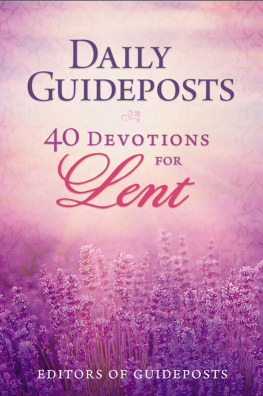
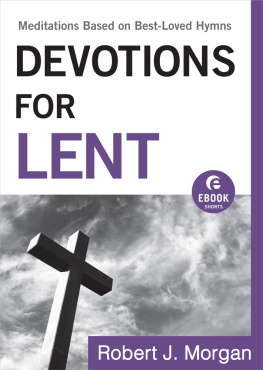
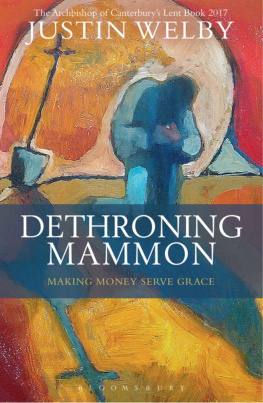
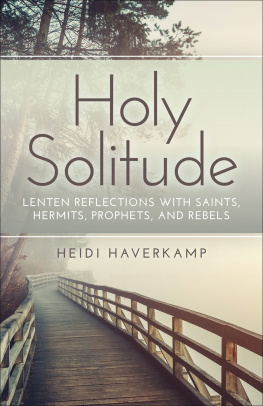
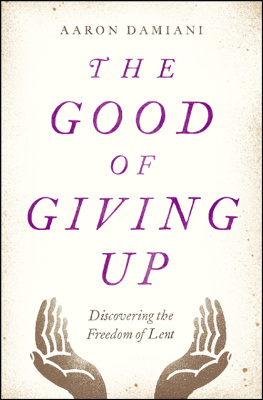

 The paper used in this publication meets the minimum requirements of the American National Standard for Information SciencesPermanence of Paper for Printed Library Materials, ANSI Z39.48-1992.
The paper used in this publication meets the minimum requirements of the American National Standard for Information SciencesPermanence of Paper for Printed Library Materials, ANSI Z39.48-1992.